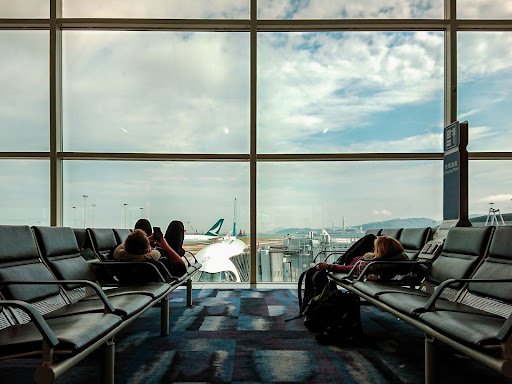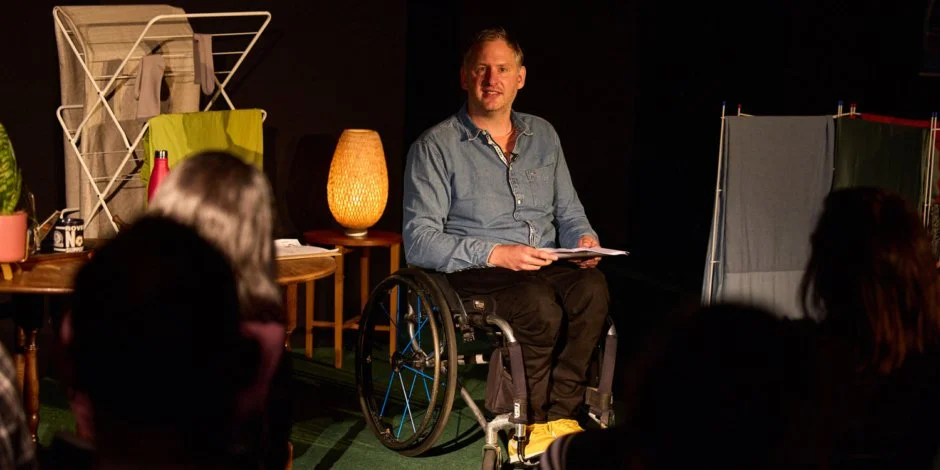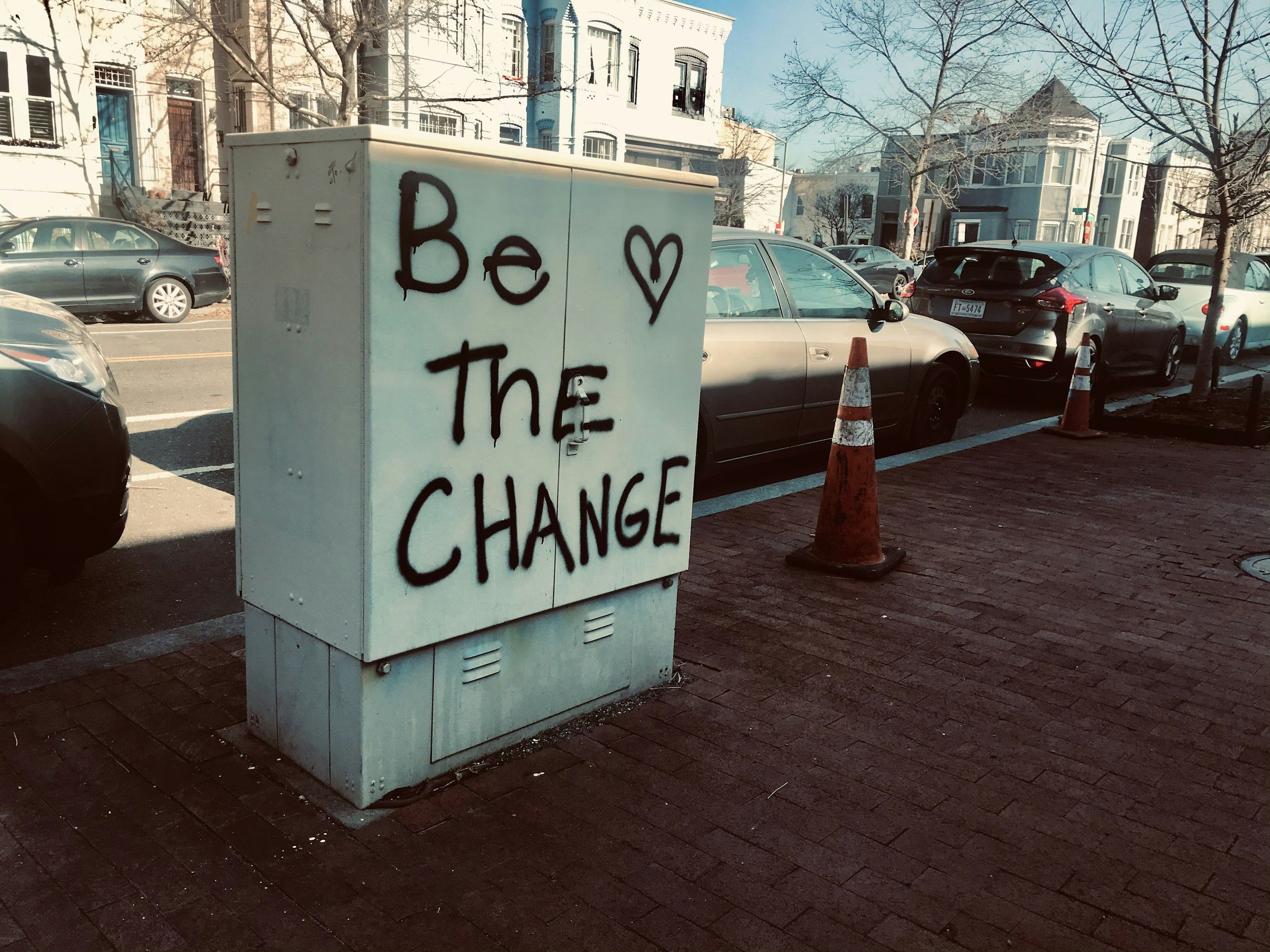How can you travel safely and efficiently this winter?
As we part ways with a summer that brought many of us back to life as we once knew it, colder days are slowly creeping back with the melancholy of autumn leaves. Within the vibrancy of trees, though, I cannot help but sense a breeze of uncertainty, wondering what the next few months will bring in terms of the pandemic.
As of the end of October 2021, around 68% of the population have been vaccinated here in the UK – see national data from the government here and a worldwide country vaccination checker here. As travel opens up across the globe, the prospects of catching some southern sun seem rather positive. Finally, it seems we are once again lucky enough to jet off to experience other cultures and enjoy some time away from our homes: a well-needed change of scenery, indeed.
Unsplash: @shiblulu
On October 4th, the government announced its new system for international travel. In a nutshell, this new plan set out to make travelling back to the UK less of a faff and much cheaper for those who have decided to get the jab.
My first question is ‘what about a new system for those that, for whatever reason, have not or cannot get the vaccine?’. And, is this system really as simplified as the government claims? Let’s bust this myth…
At the time the new system was implemented, I was abroad visiting family and friends in Switzerland. Fabulous, was my initial reaction, thinking I wouldn’t have to spend as much money and time on tests upon my return to the UK.
I visited the government website two days before flying home to double-check I had the necessary documents. Here you will find guidance on what you need to do before entering the UK from another country; there is advice for both vaccinated and unvaccinated people.
Nothing had changed since I last travelled in terms of which documents I needed to supply - all you need is proof of vaccination/negative test and a passenger locator form.
Before you can submit the form, you must first book a Day 2 test with a certified government test provider. You are then sent a unique reference code that you need to supply for the passenger locator form. There is even a list on the government website with prices and providers all around the country.
Cool, seems pretty straightforward.
Unsplash: @vieirra
Or so I thought.
I went through the list of test providers, trying to find one that was actually as cheap as the government said the new tests would be. Even though you can see the prices right next to the providers – with most offering tests from just £1.50 or £3 – once you visit the actual provider website and click through the options, the prices then skyrocket to £50-75.
There were a few providers I found that offered Day 2 test kits for about a tenner, which I thought was reasonable. Until the provider told me that in order to receive my unique booking reference for my passenger locator form, I had to collect the test in person in the UK.
What’s more is that when I applied a filter to generate test providers in the southeast, there were many providers based in Scotland. It was a very confusing experience, and it didn’t help that there were so many different providers listed to click through, but many of them used the same website. I was going in circles with what seemed like no luck whatsoever, so after an hour of scrolling, I settled for the cheapest test I could find for £40.
The biggest joke about these Day 2 tests is that they aren’t even properly followed up on by the government. I know so many people who just order them for their booking reference so they can fill in their form, but then still have the unopened test kit sat at home even weeks after returning to the UK.
Once you have a test booked, you need to check if you qualify as fully vaccinated. Here is the page where you can check which vaccines are approved in the UK. In most of Europe, if you have had and recovered from COVID, you have the same status as double-vaxed for 180 days. Once that period is up, you then only need one dose of the vaccine to qualify as fully vaccinated.
However, the UK does not recognise this and has no guidance available for those who have recovered from COVID. Because there was no information whatsoever about whether I qualified as fully vaccinated or not, I decided to pay for a test before flying back just to be safe.
Unsplash: @towfiqu999999
Before booking your flights, I highly advise researching what the entry requirements are for the country you are looking to visit, as well as informing yourself on what you will need to do before travelling back to the UK.
It can be tricky to get all the information you need, but it’s worth the effort if you take your time and are patient. Not every country in Europe, let alone the rest of the world, has the same requirements, so don’t just assume it will all be fine if you are vaccinated.
For instance, some countries only accept certain types of the vaccine, some don’t accept those who have had two different types of the vaccine. In other countries, if you have recovered from COVID but aren’t vaccinated, you can still travel there without getting tested or having to quarantine upon arrival.
There are also countries such as Denmark that don't require masks to be worn, but then in others like Belgium, a mask must always be worn when out and about. There are even some places like Switzerland that require you to have a vaccination certification to dine in at restaurants or visit museums and tourist attractions inside.
As you can see, it’s a bit of a brain teaser, but at the end of the day we must remember that these regulations are all in place to protect not just ourselves, but others that are more vulnerable to contracting the virus.
Unsplash: @kirklai
Now that I was finally at the airport, I felt confident that I had all the documents I needed and took precautions to protect myself as well as others from the virus, even though it was perhaps more expensive than I initially expected.
Before boarding the plane, my documents were briefly checked by a flight attendant, and I was then told that because I had a vaccination certificate, I needn’t have done a test before flying. When I then arrived at Gatwick airport, I went straight through the electronic passport gates without anyone at customs checking I had the right documents.
What an absolute waste of time, effort, and money. All this trouble I went through only because the government doesn’t provide sufficient or clear enough information on travel guidance. Don’t get me wrong, it’s not that I think these documents or tests are unnecessary.
We need these regulations and requirements in place to be safe and protect others when we return from our travels. But how are we supposed to do our part when the government cannot even provide us with the most basic of information?
Here are my top tips to bear in mind if you are planning on traveling abroad this winter:
Make a checklist for your destination country’s entry requirements as well as for travelling back to the UK.
Book all of your required tests and prepare all of your documents before booking flights.
Double-check the guidelines for both the airport and airline you are departing from/with.
Print out any documents you will need to show instead of saving them on your smartphone – this makes checking them quicker and having it on paper is always safer.
Put all of your documents and your passport in a folder so that you can have them ready to hand and all in one place.
Arrive at the airport earlier than you normally would – I almost missed my flight because the queues were so long due to documents needing to be checked.
No matter where you are traveling to, pack plenty of masks and some antibac wipes.
Make sure you have an easily accessible hand sanitiser for your journey
(natural skincare brand Balmonds does a lovely sanitiser that doesn’t make your hands sticky or dry them out – a perfect 100ml size for your hand luggage and will last throughout your travels).To minimise catching germs, pack your own lunch/dinner to eat on the plane.
Wear long bottoms and sleeves if you can – airplanes aren’t as clean as you think.
Bring a book or magazine to read if you have to wait in queues for a while.
Board at the last minute so you don’t have to queue closely behind people in the airplane when finding your seat.
I loathe the fact that this checklist is the only comprehensive answer I can provide to the question of how you can travel safely and efficiently this winter. No matter where you are travelling to or from this winter, keep calm, stay safe, and make the absolute most of your adventure!
Written by Maisie Gervais
@gourmaisiee @maisiegervais
maisiegervais.co.uk
Help us keep the City Girl Network running by supporting us via Patreon for the price of a cheap cup of coffee - just £2 a month. For £3 a month you can also get yourself a Patreon exclusive 10% off any of our ticketed events! You can also support us by following us on Instagram, and by joining our City Girl Network (city wide!) Facebook group.















